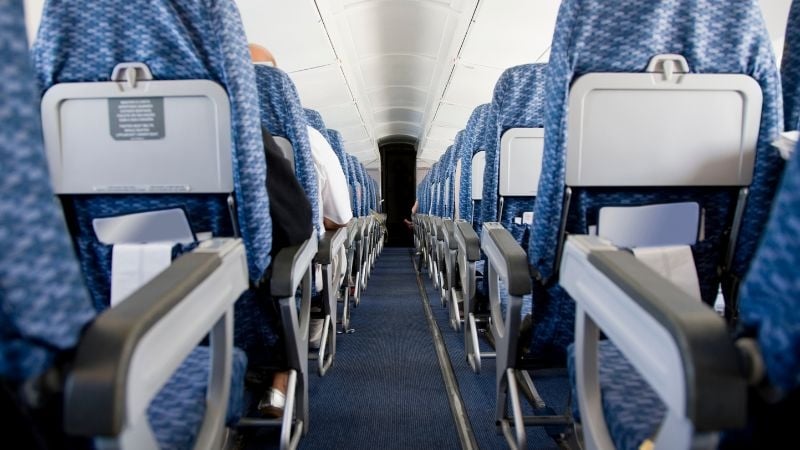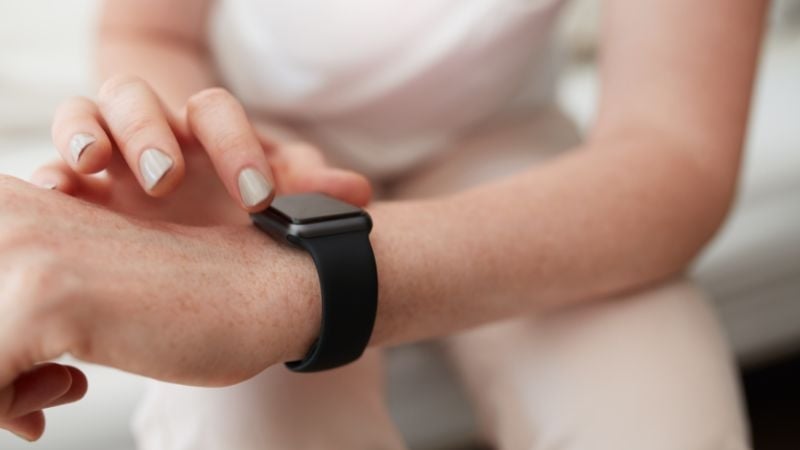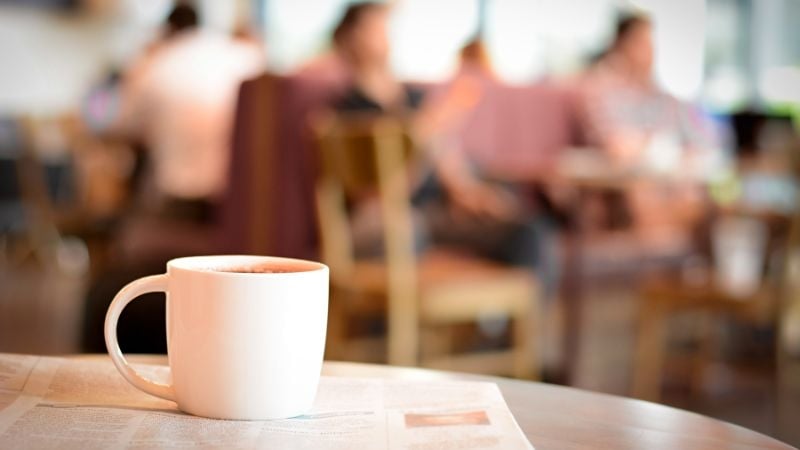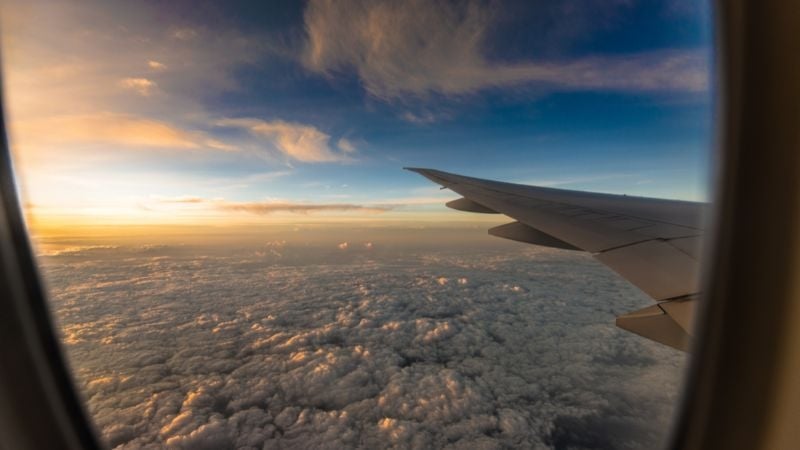Whether you’re braving a non‑stop 18‑hour haul or connecting across continents, long flights can be draining. But with a bit of planning, the right gear and mindful habits, you can arrive fresher, calmer and ready to explore. Here’s how to make the hours pass more comfortably, broken down into what to do before, during and after your flight.
Also read: 13 Travel Packing Hacks Every Traveller Should Know
Pre‑flight: Prepare to stay comfortable
Pack essentials in your carry‑on

Image credit: krisblackphotography via Canva Pro
Think carefully about what you’ll actually want at your seat. A small pouch of travel‑sized toiletries—moisturiser, lip balm, toothbrush, toothpaste and face wipes—can help you freshen up mid‑flight or before landing. A refillable water bottle is invaluable: fill it after security or ask cabin crew to refill it throughout the flight.
It’s great to have all these items within easy reach in a smaller bag, so you’re not constantly digging through the overhead bin.
Do your pre‑board ritual
If your flight departs at night and you’re hoping to sleep, treat boarding like bedtime. Wash your face, brush your teeth and change into comfortable clothes before you step on the plane.
It might seem trivial, but doing what you normally do before bed helps send a clear signal to your body that it’s time to rest, even if it’s only 6 pm local time.
Choose an aisle seat if you can

Image credit: Mlenny via Canva Pro
For long flights, many travellers swear by the aisle. It makes it much easier to get up and stretch, visit the loo or just move about without disturbing your neighbours.
If you value sleep above all else, you might still prefer a window seat so you can lean against the side of the cabin, but for stretching and circulation, aisle seats often win.
In‑flight: Small habits make a big difference
Get comfortable

Image credit: evrim ertik via Canva Pro
Once you’ve settled in, set up your seat area: lumbar pillow behind your back, neck pillow ready for naps, and compression socks on to help blood flow. An eye mask can block out cabin lighting, and noise‑cancelling headphones or earplugs reduce the hum of the engines and passenger chatter.
Mid‑flight, freshen up with face wipes or a dab of moisturiser, and reapply deodorant before landing; it helps you feel human again after hours in recycled air.
Set your watch to destination time

Image credit: Mojo_cp via Canva Pro
One of the easiest ways to start adjusting your body clock is to change the time on your watch or phone as soon as you board. Try to eat, nap and stay awake according to the time at your destination. It won’t fix jet lag completely, but it helps your body start to adapt.
Move frequently
Every 2 to 3 hours, stand up and walk the aisle or do gentle stretches near the galley. If you’re stuck in your seat, flex and extend your ankles, circle your feet and shrug your shoulders. These small movements keep your circulation going, reducing stiffness and lowering the risk of deep vein thrombosis (DVT).
Stay well‑hydrated

Image credit: Engin Akyurt via Canva Pro
Cabin air is dry so drink water regularly, even if you’re not thirsty. Avoid too many sugary drinks and consider adding hydration tablets or electrolyte powder to your bottle for an extra boost.
A hydrated traveller is generally a happier one: you’ll feel less tired, your skin will stay in better shape and you may recover from jet lag a little faster.
Limit alcohol and caffeine

Image credit: chalabalaphotos via Canva Pro
Both are dehydrating, and while a glass of wine might help you nod off, it can disturb your sleep later and leave you feeling sluggish. Sticking mostly to water or herbal tea keeps your system balanced and helps avoid the ‘puffy’ feeling that often comes with long flights.
Pre‑load entertainment
In‑flight systems can be unpredictable: screens freeze, headphones stop working or the selection simply doesn’t suit your taste. Download shows, films, podcasts and audiobooks onto your own device before you leave.
If you enjoy reading, bring an e‑book or a light paperback. Having plenty of options makes it easier to pass the hours, especially during those restless times when you can’t sleep.
Tidy up your phone or photos

Image credit: hamik via Canva Pro
When your eyes are tired of screens or you can’t concentrate on a film, take the chance to declutter your phone: delete duplicate photos, organise albums or clear out unused apps. It feels productive, doesn’t require an internet connection and makes the flight feel less wasted. Plus, it clears your storage to take new travel photos and videos!
After landing: Help your body catch up
Gentle outdoor activity
Once you’ve landed and reached your accommodation, try to get some fresh air, even if you’re exhausted. A short walk in daylight helps reset your body clock and signals that it’s time to be awake.
Don’t over‑plan your first day

Image credit: Kritchanut via Canva Pro
It’s tempting to pack your arrival day with sightseeing, but give yourself breathing room. Keep activities light, maybe visit a park, grab a coffee or wander a local street. You’ll settle in more comfortably and have more energy for the days ahead.
Also read: Europe for First Timers: Essential Tips and Best Cities to Start With
You got this

Image credit: bulletrain743 via Canva Pro
Long flights will probably never feel short, but a bit of planning and a few simple habits can transform the experience from draining to manageable. Pack thoughtfully, move often, keep hydrated, and sync with local time as soon as you can. That way, you’ll step off the plane feeling calmer, clearer‑headed and ready to start your journey.





